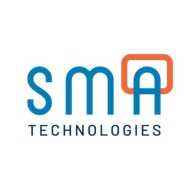

MuleSoft Anypoint Platform and OpCon are products that compete in the integration and automation category. Anypoint Platform seems to have the upper hand due to its robust integration capabilities and flexibility with extensive connectors and templates.
Features: MuleSoft Anypoint Platform offers efficient API management, a wide range of connectors for various applications, and flexibility in handling complex integrations with out-of-the-box templates and custom coding options. OpCon is known for its strong automation capabilities, focusing on job scheduling, self-service features, and efficient process management.
Room for Improvement: MuleSoft Anypoint Platform could improve its technical support, documentation, and release cycle speed, as well as its pricing model and troubleshooting resources. OpCon could benefit from enhancing user interface intuitiveness, simplifying job configuration, and providing more templates for common tasks.
Ease of Deployment and Customer Service: MuleSoft Anypoint Platform supports deployment across public, private, and hybrid clouds, while OpCon is more favored for on-premises deployments. MuleSoft receives mixed reviews for technical support, with some users noting delays, whereas OpCon is praised for responsive, client-centric customer service, though users express a need for more intuitive documentation.
Pricing and ROI: MuleSoft Anypoint Platform has a complex licensing model with high costs which can be justified by enterprises due to its integration capabilities, but smaller companies may struggle with ROI. OpCon, although more expensive initially, is often more affordable than competitors and provides cost savings by reducing labor costs, yielding positive ROI when fully adopted and scaled.


MuleSoft Anypoint Platform is used for integration and API management, connecting enterprise applications across retail, e-commerce, and supply chain. It supports cloud-to-cloud and cloud-to-on-premises scenarios with real-time and asynchronous messaging.
Users leverage MuleSoft Anypoint Platform for diverse integrations including cloud-based and on-premises, enabling data transformations, middleware functions, and hybrid integrations. It seamlessly connects systems like SAP, Salesforce, and Oracle, facilitating data transfers and integrating legacy systems. The platform offers a graphic interface, quick implementation, and a variety of connectors, contributing to its popularity for robust and scalable solutions. Despite its strengths, users seek better technical support, more connectors, simplified runtime management, and improved documentation.
What are the key features of MuleSoft Anypoint Platform?Enterprises in retail, e-commerce, and supply chain implement MuleSoft Anypoint Platform to connect various applications and systems. It supports real-time messaging for inventory management, synchronizes customer data across platforms, and integrates with legacy systems for smooth data migration. Users benefit from quick deployments and a marketplace that accelerates integration projects.
OpCon automates batch processing, core system operations, file transfers, and daily processing. Integrated across Unisys, Windows, and cloud systems, OpCon is used in financial institutions, credit unions, and multi-platform environments for job scheduling, report generation, SQL queries, scripting, and FTP processes, handling thousands of jobs daily.
Users value OpCon for comprehensive automation capabilities, particularly the scheduling feature that allows advance planning and streamlined workflows. The self-service functionality enables non-IT staff to manage tasks efficiently. OpCon's integration with core banking systems, robust job management, and error notification system significantly improve operational efficiency. Features like Solution Manager enhance accessibility and control, ensuring process continuity and ease of use.
What are the Key Features of OpCon?
What Benefits Should You Look for in Reviews?
Users find OpCon complex with a steep learning curve. Desired improvements include better separation of environments, enhanced graphical display, finer user authorization, simpler notification and alerts, more templates, increased web functionality, seamless interface, integration tools, online training, smoother scheduling, better reporting, mobile accessibility, smarter self-service, improved mainframe support, and integration with third-party systems. Pricing model and licensing could be more streamlined.
In financial institutions and credit unions, OpCon is implemented to handle thousands of daily jobs, automate internal processes, and integrate workflows across various platforms. It ensures secure file transfers, generates detailed reports, executes SQL queries, and supports seamless third-party integrations.
We monitor all Workload Automation reviews to prevent fraudulent reviews and keep review quality high. We do not post reviews by company employees or direct competitors. We validate each review for authenticity via cross-reference with LinkedIn, and personal follow-up with the reviewer when necessary.